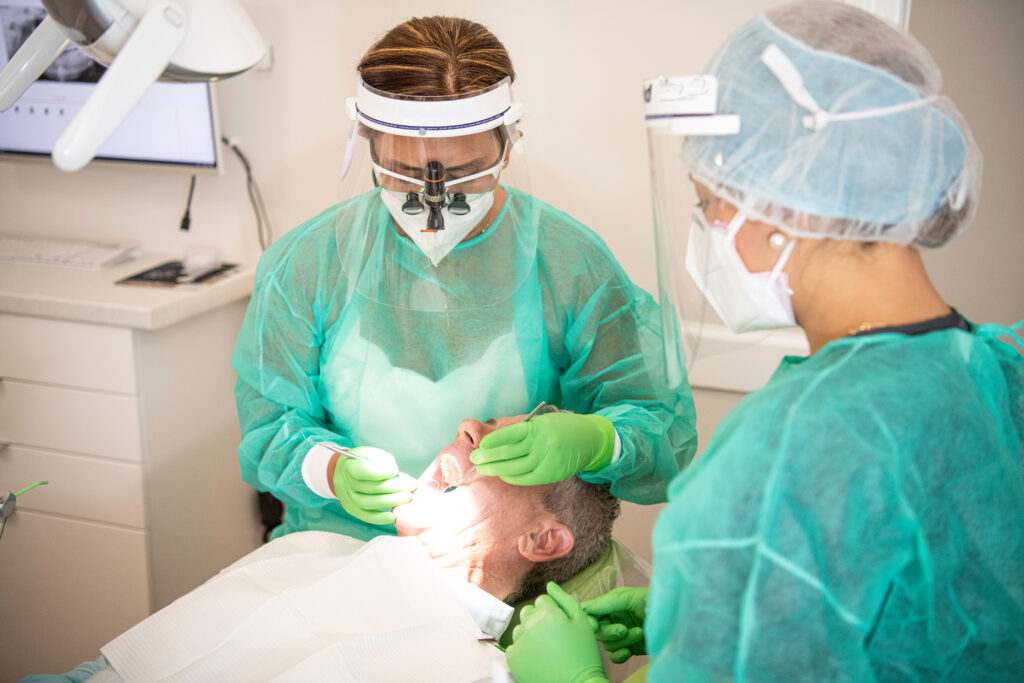As a business advisor and attorney working with many closely-held businesses, including dental practices, we are commonly approached with the question, “how do we maintain our superstar dental associates and why do they keep leaving?” This question is not uncommon and is not limited to dentistry. Rather, the issue of maintaining our high-quality team members crosses over into many industries, and the reasons why they leave are numerous. There is no exhaustive list or definitive answer. Rather, the answer generally includes a combination of factors that play into an employee leaving or staying and a number of strategies that one can employ to garner long-term employment and loyalty from those high-quality team members. In this specific blog, I will discuss one of many factors that play into a long-term relationship with a dental associate—being rewarded for a job well done.
But First, It Is Not All About the Money!
Now, I will be talking about compensation in this specific blog. But, initially, I do want to mention that there are many other factors, in addition to money, that play into long-term employment. It is not always about the money, and that is important to remember. So, recognizing that it is not, “always about the money,” what are some of the strategies that should be considered to retain dental associates, long-term?
- Communicate clearly, often, and follow through with your promises. If you have made an offer to a future dental associate or promised a current associate something, follow-through, document it, and keep your commitment.
- Recognize that “everyone” is not you. Your team, including your dental associates, think differently, operate differently, are motivated by different factors, and therefore cannot be expected to be and act like you. And, that is ok.
- Nurture those relationships, pay attention to them, and address their reasonable needs and concerns. The talent in your office is no different than a spouse, significant other, or child. That is, if we want to have an everlasting and rewarding relationship with them, we have to be intentional and nurture those relationships.
- Surround them with fantastic team members.
- Provide them with the tools and equipment to succeed, including continuing education.
- Meet with them regularly outside of the office. There should be a routine check-in that is intentional and consistent.
- Pay your dental associates above fair market value. And, remember, that above fair market value compensation does not have to be all in cash. Rather, it could be in terms of paid days off, retirement, healthcare, continuing education, professional liability, mentoring, professional coaching, providing a life coach, and many more other benefits. Do not be cheap and pay your people well.
- And let’s remember, it is a lot more costly to lose a good employee. If you lose a dental associate you have to retrain a new associate, which will generally take 18 to 24 months before they are fully operational and profitable. So, rather than training and mentoring a new associate, why not nurture your current associate and pay them a reasonable compensation above fair market value? From my perspective, losing 18 to 24 months of production and efficiency is a lot more expensive, both dollar-wise and emotionally. Losing an employee and training another, is simply emotionally draining.
- Finally, we have to create a culture that motivates our team to be part of that team. A strong work culture creates positivity and a desire to go the extra mile. It manifests the feeling of excitement when they wake up in the morning and makes them feel like they have a purpose. This requires intentional and purposeful steps that many dental practices fail to consider, fail to recognize, and fail to understand that it may require a third-party to assist and monitor.
- And, let’s remember, we could do all of the above, and the dental associate may still leave. And, that is ok. But, if we do all of the above, more times than not, they will stay.
- Finally, we have to hire smart. If we hire folks that create negativity, gossip, and fail to have the values that we want in a team member, it will negatively impact those employees that we are trying to retain. So, spend the time and money to identify the right employees, by: (i) having very specific and accurate job descriptions and advertisements posted; (ii) conduct thorough interviews and involve your team; (iii) complete personality testing; (iv) conduct background checks; (v) make the first day memorable for the employee; and, among others, (vi) follow-up with the new team member within the first, second, and third month of employment, while also completing timely and consistent reviews on a regular basis going forward.
Thinking Beyond the Typical Compensation
and Benefits for Dental Associate Compensation
Now that we have addressed some of the non-compensatory factors that play into long-term employment and loyalty, I do want to address rewarding the associate dentist. This blog is not intended to cover the basic compensation and benefits of net collections and net production, lab fees, professional liability, marketing expenses, retirement, healthcare, and others. Those listed benefits are all important. But, the basic compensation and benefits discussed in the preceding sentence are usual and customary in each dental practice. Sure, there are nuances that come into play, and some things that certain dental practices may do differently. But, for the most part, most dental practices do the same thing and compensate the employees, including the dental associates, the same way. For other dental practices, however, we must do more and we must do more than what is “usual and customary.” For those owning dentists that own more than one practice, for example, one of the biggest problems they have is retaining their dental associates. So yes, we do need to address all the benefits above. But, we have to start thinking like a business, not a practice, and think about the associates as highly-paid executives. What else can we do to retain our highly-compensated associates?
There are three areas of compensation that I would like to discuss that should be considered to differentiate yourself from other businesses. And again, I use the word business intentionally. Although it is a dental practice, it is a business. The three areas of compensation that I would like to discuss are: (i) phantom stock; (ii) stock appreciation rights; and (iii) profit sharing.
- The Phantom stock is a form of equity-based compensation where the practice promises to pay cash at a future date equal to the fair market value of a share of actual stock.
- Stock appreciation rights are slightly different in that the company promises to pay cash at a future date in an amount equal to the appreciation in the fair market value of a share of the practice’s actual stock from the date of grant. Otherwise, the elements of a SAR program are similar to a traditional phantom stock program.
Under either approach, if the associate is still employed at a certain specified date in the future, e.g., 5 years, then his right to the “award” becomes non-forfeitable—an alternative may be to have vesting tied to the achievement of certain performance hurdles, such as an increase in EBITDA (earnings before interest, taxes, depreciation, and amortization). Importantly, if the plan is properly drafted, no income is realized by the associate dentist at the time the associate is granted the phantom stock units or stock appreciation rights. The associate dentist will realize ordinary income when the benefits are paid in cash. The practice will be entitled to a deduction in the same amount at the same time. - And third, incentive compensation through profit-sharing means that the practice defines net profit and shares a percentage of that net profit with the dental associate. Now, there may be specific benchmarks that the dental associate must meet on a monthly, quarterly, or yearly basis for that profit-sharing to kick in. As an example, the practice may require the dental associate to participate in administrative activities, oversee the website development, review the financials on a regular basis, participate in preparing and overseeing the financial dashboard, track key performance indicators, work with and oversee staff members, complete reviews for staff members, and many more additional duties. By having these specific duties and benchmarks met, there is a sense of involvement and participation in ownership. Thus, even though the associate may not be required to buy-in to share in the profits, they are certainly sharing in the overall duties that a business owner must complete on a regular and continuous basis. It is a win-win for all involved.
The idea with all three of these compensation models is to share in the wealth and success of the practice, without giving up equity in the practice and without requiring the associate to buy-in. Yet, all three compensation models also have a level and feeling of ownership in the practice, since the compensation is directly tied to the success and value of the practice, itself. Please understand, the above are only three alternatives to rewarding a dental associate. If we are interested in retaining our dental associates long-term, while at the same time, garnering that associate’s loyalty, however, these are three alternatives to consider. Remember, we have to do more than what is usual and customary for each and every dental practice. And also remember, it takes more than compensation and benefits to maintain that associate and garner that loyalty.

 Vince Nardone Discusses Employment Contracts with Ohio State Dental Students
Vince Nardone Discusses Employment Contracts with Ohio State Dental Students  Navigating the 2024 Landscape: Strategies and Considerations for Dental Support Organizations (DSOs)
Navigating the 2024 Landscape: Strategies and Considerations for Dental Support Organizations (DSOs)  Sellers of Dental Practices to DSOs need to have a Buyer’s Mentality Requiring Selectivity and a Well-Thought-Out, Decision-Making Process
Sellers of Dental Practices to DSOs need to have a Buyer’s Mentality Requiring Selectivity and a Well-Thought-Out, Decision-Making Process  Increasing Profitability by Minimizing Disruptions within Your Dental Practice
Increasing Profitability by Minimizing Disruptions within Your Dental Practice  As a Dentist, What Are My Obligations Related to Out-of-State Patients and Potential Prescription Drug Abuse?
As a Dentist, What Are My Obligations Related to Out-of-State Patients and Potential Prescription Drug Abuse?